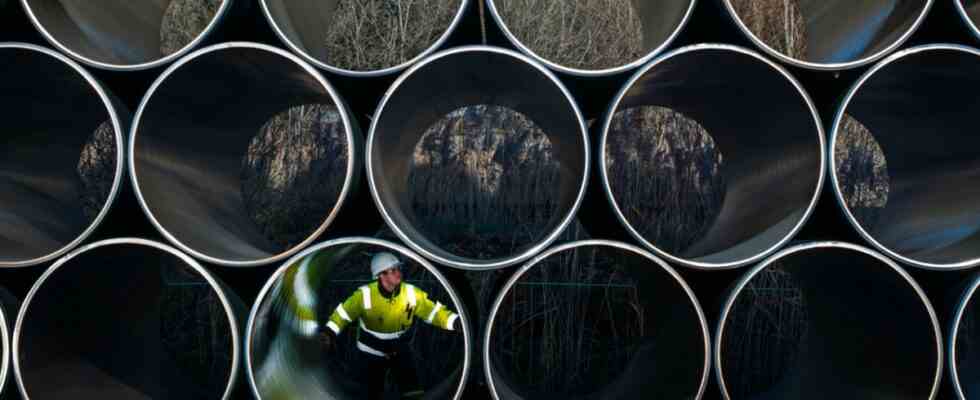It starts appropriately apocalyptic: “The showdown of the fossil age begins. The forces of the past fight theirs last battle against the forces of the future. It fights autocracy against democracy. The tyranny of an oligopolistic empire that only cares about itself is fighting against the freedom of the media, science and people. People who want the world to be theirs are fighting against people who want the world to be everyone’s. Lies fight truth.” If this were the subtitles of a film’s opening credits, the music would have to swell dramatically here.
The battle-hardened energy economist Claudia Kemfert has to do without that in her new book, but there is still enough drama. Kemfert, Head of Department for Energy, Transport and Environment at the German Institute for Economic Research (DIW), member of the Federal Government’s Advisory Council on Environmental Issues and also – in addition to numerous other offices that she holds – author and ubiquitous critic of fossil energy and thus also of so-called bridging technologies such as Gas, uses Russia’s attack on Ukraine and its aftermath as an opportunity to settle accounts with “the fossils” (and some of their supporters).
Depending on the “monster empire”
Just like with German energy policy and supply, which for decades against their better knowledge and against the resistance of the Eastern European countries, all US governments since Obama (who would have liked to sell their fracking gas) and the European Union have been in common with the “fossil “Monster empire” Russia by relying on the supply of Russian natural gas bypassing troublesome transit countries such as Ukraine – and thereby becoming dependent on this empire at the same time. That was cheap for consumers, extremely lucrative for importers, it was also harmful to the climate and expensive and dangerous for Ukraine.
In the summer of 2022, six months after the attack on Ukraine, Russia ended the flow of Siberian gas to Germany through the Nord Stream 1 pipeline, the majority owner of which is the Russian state-owned company Gazprom. Chancellor Olaf Scholz stopped the commissioning of the Nord Stream 2 twin pipeline at the last minute, two days before the start of the war. Since then, Germans have feared a shortage of gas and skyrocketing prices for the suddenly scarce commodity. It is more than clear that it would not have to be like this if Germany had listened less to the energy companies and more to science (and thus, a little vanity on the side, also to Claudia Kemfert) over the past two decades.
What was Angela Merkel up to?
With her work, Kemfert undoubtedly presents the book of the hour, in which she not only describes the genesis of the traces the fatal German dependence on Russian gas, but also emphasizes again and again how the “forces of the past” – see above – , for example German energy companies such as Eon, but also large parts of the political class, vehemently and for years blocked a turn towards renewable energies – the one out of greed for profit, the other out of short-sightedness, ignorance and laziness and – at least as far as Angela Merkel is concerned – for reasons that Kemfert ultimately cannot explain. “Didn’t she want anything else? Or couldn’t she?” the author whispers questioningly.
Good friends: Angela Merkel, not yet chancellor at the time, and President Vladimir Putin in September 2005.
(Photo: Yuri Kabodnov/AFP)
It can hardly have been due to an understanding of what would have been appropriate for climate policy considerations at the beginning of Merkel’s term in office. Claudia Kemfert explains the need for an energy transition in a “simple three-step” that is understood everywhere: “Fossil energies are scarce. Fossil energies are harmful to the climate. Renewable energies are infinitely available and good for the climate.”
Claudia Kemfert: Shock waves. Last chance for secure energies and peace. Campus-Verlag, Frankfurt 2023. 310 pages, 26 euros. E-book: 23.99 euros.
(Photo: Campus)
It couldn’t be easier. In the 300 pages of her book, the author repeatedly succeeds in exposing the core of a subject. For example, the explanation of why a rapid energy embargo against Russia in spring 2022 would not have caused the German economy or the energy supply to collapse and why this would have been a “very sovereign act of self-defense”. Which is by no means a Kemfertian obstinacy, but rather a scientific consensus. However, the federal government did not follow this, rather it was subject to the whisperings of business and industry. This is how Kempfert portrays it, quite grimly, and thus allows a glimpse of the frustration of scientists, who often have the feeling that their expertise is ordered and accepted by politicians, but then ignored.
Lush self-quotes here and there
So this book is the story of Germany’s gas dependence and the negligently missed energy transition – Anger at the sluggish German governments, which made themselves comfortable with the plentiful flow of gas from Russia, anger at the brutal autocrat Putin. This is loosened up by a mixture of personal memories, a little minister and luminary name dropping and sometimes a bit lavish self-quotes when Kemfert quotes from this blog, that podcast and not to forget this interview with herself – after all, it always serves her argument and is not an end in itself.
All in all: an instructive, direct and even entertaining book, written for Ottilie and Otto normal gas consumers who have long suspected and are now finding out what dependencies Germany has gotten into and that it is now really high time for the much-praised one energy transition.

